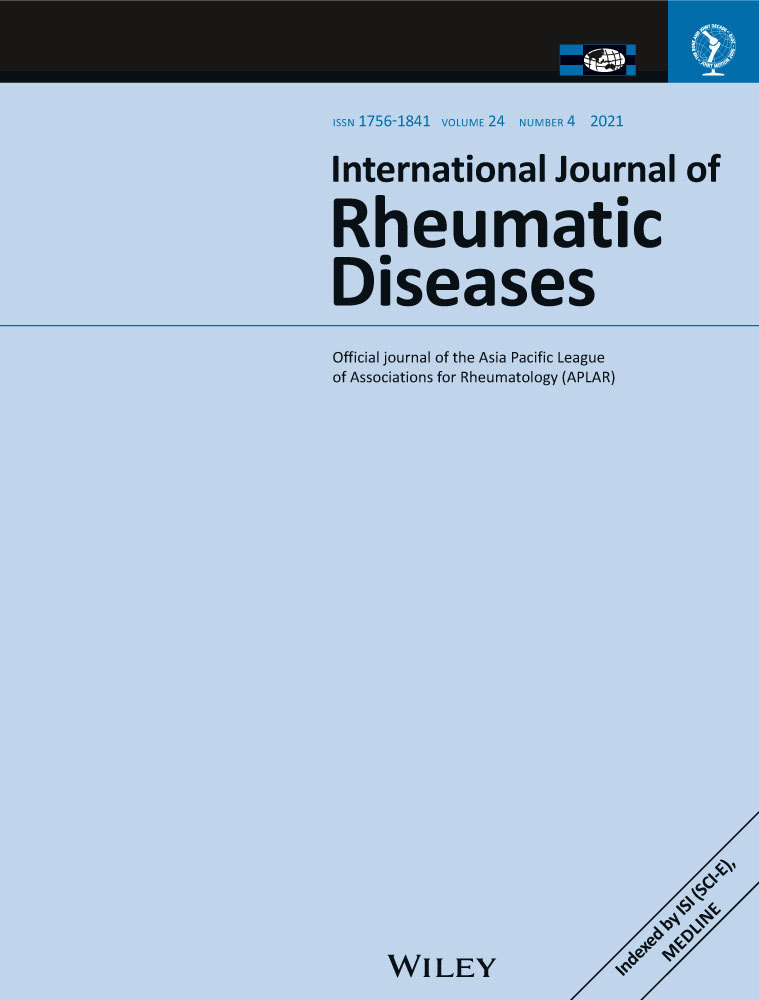A rheumatologic approach to granulomatous mastitis: A case series and review of the literature
Sarah Ringsted and Marcia Friedman are equal contributors to this work.
Funding information
Support for this work was received through the following grants: National Institutes of Health grants 3T32HL094294-08S1, KL2TR002370, and the OHSU Wheels Up program
Abstract
Aim
Idiopathic granulomatous mastitis (IGM) is an enigmatic inflammatory breast disorder. IGM responds to immunomodulatory treatment and may be associated with systemic manifestations such as arthritis and erythema nodosum. These patients are increasingly referred to rheumatologists for management, but IGM is rarely discussed in the rheumatology literature. The objective of this report is to familiarize rheumatologists with the treatment and systemic manifestations of IGM. We report here a case series of IGM at our institution, and a literature review of IGM treated with methotrexate (MTX).
Method
Patients with IGM at our institution were identified and described using a retrospective chart review. A literature review of PubMed and Google Scholar identified studies of IGM patients treated with MTX.
Results
We identified 28 IGM patients at our institution. Inflammatory arthritis/arthralgia were present in four patients (14%), and five patients (18%) had erythema nodosum. Patients treated with MTX had the highest rates of relapse-free remission; relapse-free remission occurred in four of the five (80%) MTX-treated patients, compared with 5 of 12 (42%) patients treated with steroids alone, and two or three (66%) patients treated with steroids and surgery. In the literature review, 116 patients treated with MTX were identified, and the rate of relapse-free remission ranged from 58% to 100%. Arthritis/arthralgia and erythema nodosum were more common at our institution than reported in the literature.
Conclusion
Methotrexate is a promising treatment for IGM. Arthritis/arthralgias and erythema nodosum may be under-recognized when IGM patients are managed outside rheumatology. Prospective studies are needed to characterize clinical features and optimum treatment of IGM.
CONFLICT OF INTEREST
The authors have no conflicts of interest to declare.




